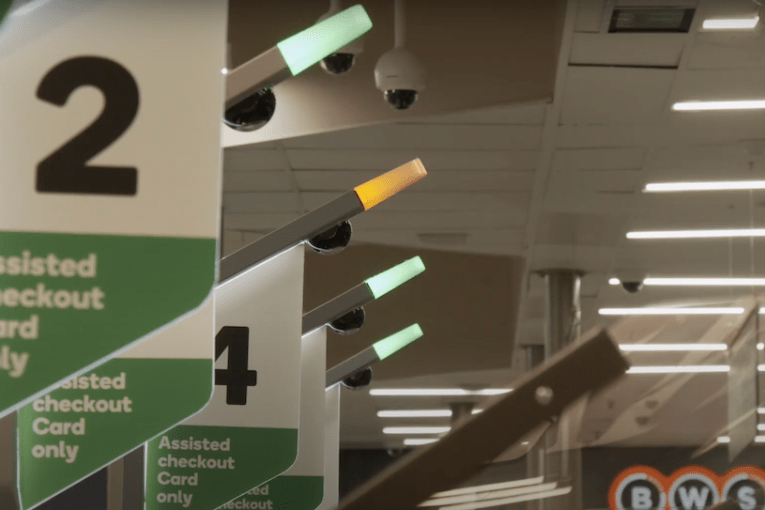The booming industry that could deliver a big win for Australian business

Global demand for meat is expected to soar, potentially creating a multi-billion dollar secondary market for plant-based alternatives.
And although domestic sales of fake meat are tipped to hit $1.4 billion by 2030, the local industry will need an injection of capital to compete on the global stage.
Nick Hazell, founder and CEO of plant-based meat manufacturer V2Food, told The New Daily Australia is well placed to fill a predicted shortfall in meat production in coming decades.
Per-capita meat consumption typically increases as the average wealth of a nation grows, which Mr Hazell noted will drive demand from a range of developing nations.
Sales of plant-based meat alternatives have soared across Asia, with analysts and research experts citing increasing consumer health awareness as well as anxiety over food safety triggered by #COVID19.#plantbased https://t.co/421v2NKJA4
— Food Frontier (@foodfrontierorg) July 14, 2020
So much so that meat production will need to double over the next few decades to meet demand – something Mr Hazell said will be “impossible to do using animals”.
“They’re not efficient converters of grains and legumes, it’s much more efficient to do it directly, and that’s the simple maths behind the plant-based meat industry,” he said.
Mr Hazell noted that fake meats require fewer inputs than their animal-based counterparts.
For example, research from the University of Michigan found that a plant-based Beyond Burger patty is made with 99 per cent less water, 93 per cent less land, and 46 per cent less energy than a standard, quarter-pound beef patty.
This presents an opportunity for Australian farmers, Mr Hazell said.
The domestic agricultural sector has the capacity to produce the necessary ingredients for meat substitutes, as well as a reputation for quality produce – making it an attractive prospect for importers.
V2Foods has already seen the benefit of that, Mr Hazell said.
“The feedback we’re getting is astonishing, both in Australia but also abroad, particularly our latest developments, our pork products,” he said.
“The feedback from Asia, and from Chinese chefs, is really really positive.”
The Lucky Country is already a powerhouse when it comes to meat production, turning out $10.8 billion worth of beef exports in 2019.
That was enough to secure the title of world’s largest beef exporter – and Mr Hazell said the significant revenue intake could be complemented by growing Australia’s artificial meat exports.
Billion dollar opportunity
Australians are among the most voracious meat eaters on the planet, consuming nearly 100 kilograms per capita in 2019.
But that figure has actually been shrinking in recent years as red meats become more expensive and plant-based alternatives become more affordable and closer in taste and texture to their animal equivalents.
Modelling conducted by Deloitte Access Economics for independent think tank Food Frontier conservatively estimates plant-based meat products will generate $1.4 billion in domestic retail sales by 2030.
Under this model, only 10 per cent of domestically-made products will be exported, bringing in only $47 million.
But that figure rises significantly – to $337.3 million – if the industry is underpinned by “strong local research and development” and demand continues to grow.
“Under this scenario, exports account for 25 per cent of total sales for local manufacturers, and constitute a valuable new export category equivalent to 42,200 tonnes,” the report said.
But finding the support to achieve this could prove difficult, according to IBISWorld senior industry analyst James Caldwell.
Speaking to The New Daily, Mr Caldwell said although the sector has excellent growth potential, it faces significant challenges.
I’d be very surprised if within 10 or 20 years time, this is a major industry in Australia,’’ he said.
“Producing this stuff and inventing a fake meat that you’re going to start selling isn’t necessarily very cheap, which presents some entry barriers for Australian companies.”
Mr Caldwell also noted that the primary importer of Australian meat products are Asian countries, which so far haven’t embraced artificial meat with the same fervour as Western countries.
“Maybe down the track it will take off, and certainly concerns around food scarcity suggest we’ll have to move in this direction, but the demand from the Asian market just isn’t there yet.”
So even though Australia has the capacity to become a world leader, the willingness to achieve that goal isn’t there, he said.
Without support, Australia risks losing out to the US, which is already a dominant player in the manufacture, consumption, and supply of fake meats.








